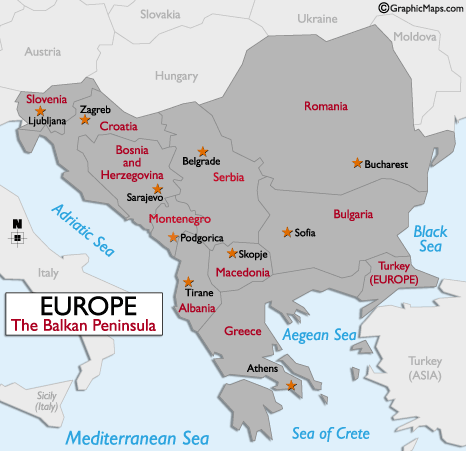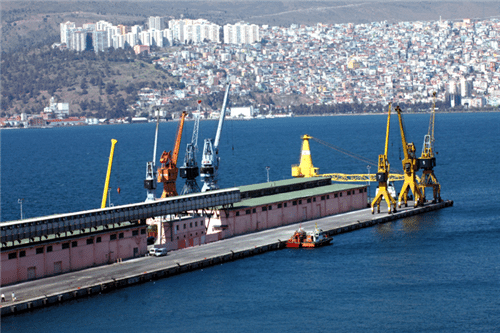By Ferruh Demirmen, Ph.D.
Houston, Texas
Judging from the press reports, one would not know it, but Turkey, the presumed supporter of the Nabucco gas project, recently helped kill the project.
It was not to be so. After all, the Nabucco project was designed not only to supply natural gas to the EU from the Caspian region and the Middle East, but also help Turkey meet its domestic needs. The intergovernmental agreement signed in Ankara amid media publicity in July 2009, followed by parliamentary seal of approval in March 2010, gave all the indications that Turkey would stand by the project.
Turkey’s BOTAS was one of the 6 partners that developed the project. The Vienna-based NIC (Nabucco International Company) represented the consortium formed by the partners. The 3,900 km-long pipeline’s planned destination was Baumgarten in Austria.
Not that the project was ideal for Turkey (). But compared to its rivals ITGI (Italy-Greece Interconnector) and TAP (Trans-Adriatic Pipeline), not to mention a host of “exotic” Black Sea options flagged by Azerbaijan, it was the most mature and most comprehensive gas pipeline project to connect Turkey and the EU to the supply sources to the east. Strategically it deserved Turkey’s support. It was the only project among its rivals that aimed to transport Azeri as well as non-Azeri gas. Turkmen gas was a high-priority objective.
Surely, with its ambitious design capacity of 31 billion m3 (bcm)/year, Nabucco was under stress. What was holding the project from implementation was the lack of feed (throughput) gas. The feed gas problem caused delays in the project, and the capital costs soared (up to EUR 14-15 billion by most recent estimates). The Azeri Shah Deniz-II gas was identified as the initial start-up gas as from 2017-2018.
But Azerbaijan, that owned the gas, and the Shah Deniz consortium that would share and produce it, were non-committal about supplying gas. That meant major headache for Nabucco. Turkmen gas input required the cooperation of Azerbaijan, and would be added to the gas stream at a later date.
In the meantime, the rival projects ITGI and TAP emerged. Like Nabucco, these also counted on Shah Deniz-II gas for throughput. A winner-take-all pipeline contest was in the works.
Still, Nabucco had a good fighting chance. On October 1, 2011, NIC submitted its proposal to the Shah Deniz consortium tabling transport terms. The rival projects ITGI and TAP did the same. A high-stakes waiting game would then start, during which the Shah Deniz consortium would pick the winner.
The spoiler project
All that changed when BP (British Petroleum), at the last minute before the October 1 deadline, came up with a new, “in-house” project: SEEP (South-East Europe Pipeline). It was a shrewd move, and immediately caught the attention of the Shah Deniz consortium – where BP is the operator and a major (25.5%) stake holder. The Azeri partner SOCAR, in particular, quickly warmed up to BP’s proposal.
Instead of building a new pipeline across the Turkish territory, SEEP envisioned the use of BOTAS’ existing network (with upgrades) in Turkey and construction of new pipelines and their integration with existing interconnectors past Turkey. Azeri gas would be the feed gas. The destination would still be Austria, but the cost would be much less than that of Nabucco.
Nabucco had come under threat.
Behind the scenes
Events behind the scenes further undermined Nabucco. On October 25 Ankara and Baku signed an intergovernmental agreement in Izmir in western Turkey. Details released to the press were sketchy, but one of the accords reached was to use initially BOTAS’ existing network in Turkey, and later build a new pipeline when needed, to ship Shah Deniz II gas to Turkey and the EU. Starting in 2017 or 2018, of the total 16 bcm gas to be produced annually from the Shah Deniz-II phase, Turkey would receive 6 bcm, and the rest 10 bcm would be shipped to the EU.
Azerbaijan would be the direct seller of gas to the EU, with Turkey being a mere bridge or transit route.
No mention was made of Nabucco, ITGI, TAP, or SEEP in the press release, but the footprints of SEEP were unmistakable.
Demise of Nabucco
Still worse news followed. On November 17, during the Third Black Sea Energy and Economic Forum held in Istanbul, SOCAR chief Rovnag Abdullayev announced that a new gas pipeline, which he named “Trans-Anatolia,” would be built in Turkey from east to west under the leadership of SOCAR. The new pipeline would deliver Shah Deniz II gas to Turkey and Europe.
Azerbaijan and Turkey had already started working on the pipeline project, he said, and others could possibly join later. The planned capacity was at least 16 bcm/year –large enough to absorb all future Azeri exports after depletion of Shah Deniz II.
While not stated so, the announcement made Nabucco effectively redundant. The announcement was an offtake from the Izmir agreement, and signaled a surprising, 180-degree turn on the part of Turkey on Nabucco.
Turkey’s energy minister Yildiz Taner tried to put the best face in the press by claiming that Trans-Anatolian would “supplement” Nabucco, while the NIC chief Reinhard Mitschek expressed his “confidence” in Nabucco.
More recently SOCAR’s Abdullayev maintained that Nabucco was still “in the race,” and NIC started the pre-qualification process for procurement contractors.
For all these business-as-usual pronouncements, however, there was little doubt that Nabucco had received a fatal blow. If Trans-Anatolia, dedicated to Shah Deniz II gas, is built, Nabucco will lose its start-up gas, and with it the justification for a new infrastructure across Turkey.
Without synergy from the Azeri gas, a full-fledged Nabucco project dedicated solely to Turkmen gas will also have a virtually zero chance of implementation.
Nabucco, in its present form, was dead. (See also . A much-modified, “truncated” version of Nabucco, starting at the Turkey-Bulgaria border, may well emerge, however.
Conclusion
With Nabucco frozen in its tracks, the geopolitics of energy in Turkey and its neighborhood has changed dramatically ). What is surprising is that Turkey assisted in undermining a project that it had long supported. It was a project that encompassed both Azeri and Turkmen gas. To reduce its dependence on Russia for its gas exports, Turkmenistan has been eager to ship its gas to the West.
Azerbaijan, apparently viewing Turkmen gas exports to the West a threat to its own gas exports, has been reluctant to cooperate with Ashgabat on this issue.
Turkey acceded to the aspirations of the Azeri brethren, while ignoring those of the Turkmen brethren. Over the past year, as the EU delegates approached repeatedly Ashgabat for Turkmen gas (vis-à-vis a TCGP or Trans-Caspian Gas Pipeline), Turkey chose to stay on the sidelines. This was a strategic mistake.
Both Baku and Ashgabat could benefit from a synergy between the Azeri and Turkmen gaz exports, and Turkey could use gas from both sources to enhance its energy security. Being pro-active on TGCP and nudging Azerbaijan in that direction would have been a wise move for Turkey. On balance, there is little doubt that on the gas issue Azerbaijan has played its cards well – perhaps too well!






